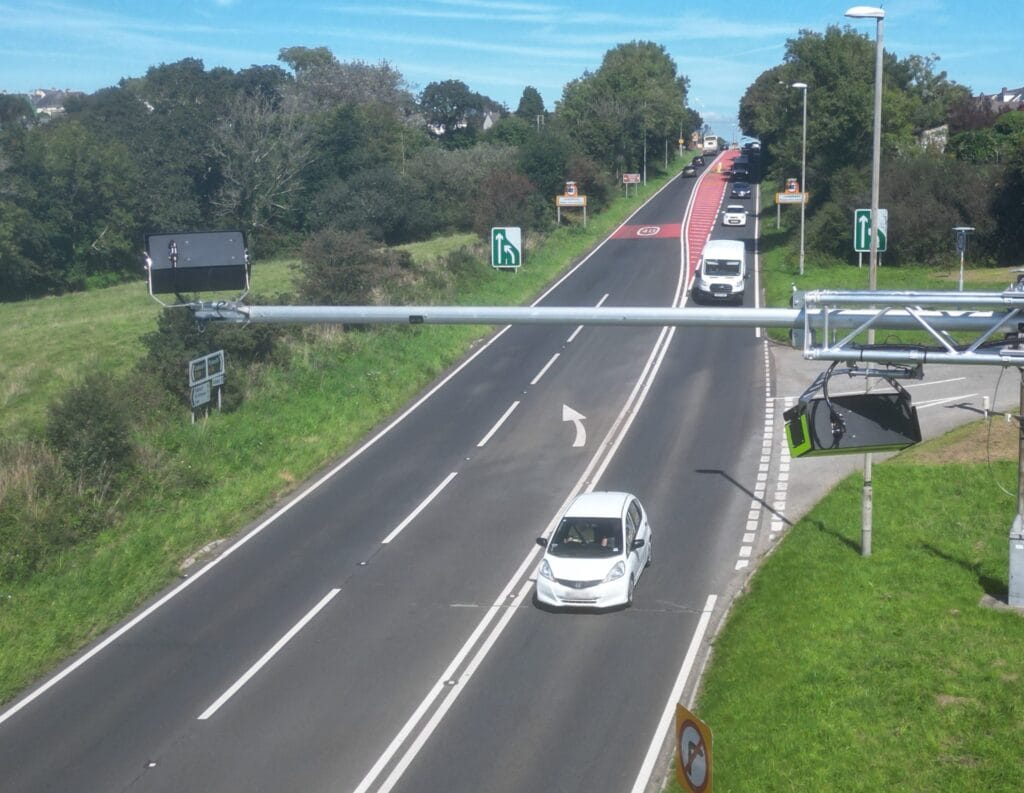A world first, state-of-the-art camera system which uses AI to help detect impaired drivers is being trialled in Devon & Cornwall this December.
The technology, pioneered by road safety firm Acusensus, detects road use and behaviour consistent with drivers who may be under the influence of alcohol or drugs.
This information is then communicated in real-time to police officers at a nearby location who can then pull the vehicle over and conduct further enquiries – potentially including roadside impairment testing for drugs and alcohol.
The camera system, which is based on the existing mobile phone and seatbelt technology, is relocatable and can be moved to different locations across the region where Devon & Cornwall Police have intelligence about potential drink or drug driving offences. The system will also provide police with intelligence around vehicles which may be driven by impaired drivers.
The trial is taking place throughout December to coincide with other drink-driving campaigns such as Lift Legend, Operation Limit and new Night Bus services in parts of Torbay and North Devon.
It’s all part of Vision Zero South West’s efforts to reduce incidents of impaired driving and cut the number of people killed or seriously injured on Devon & Cornwall’s roads.
Superintendent Simon Jenkinson of Devon & Cornwall Police’s Roads Policing Team said: “Drink and drug driving causes untold levels of harm – both here in Devon & Cornwall and all over the world.
“As members of the Vision Zero South West road safety partnership, we have committed to doing everything we can to reduce the number of people killed and seriously injured on our roads. Embracing emerging technology such as these cameras is vital in that quest.
“We have an expansive road network of nearly 14,000 miles in Devon and Cornwall meaning our officers cannot be everywhere. Camera technology helps us to target operational resources in an effective way, where intelligence informs our deployment.
“We will be deploying the cameras at various locations throughout the region in December and working closely with Acusensus to make sure this system is as accurate and effective as possible.”
Vision Zero South West have already successfully worked with Acusensus on their ‘Heads Up’ AI camera system which detects mobile phone and seatbelt offences, and are continuing to work together closely to explore other opportunities to detect and deter road related harm.
Geoff Collins, UK General Manager of Acusensus, said: “We are delighted to be conducting the world’s first trials of this technology right here in Devon and Cornwall.
“Driving while impaired is incredibly dangerous and quite often you only find out that a driver was drunk or under the influence of drugs after a collision has occurred.
“We are all safer if we can detect impairment before it causes an incident which could ruin lives. We believe this technology could be a really important tool in this battle, both detecting and also deterring impaired drivers behind the wheel.”
Cllr Stuart Hughes, vice-chair of the Vision Zero South West road safety partnership and Devon County Council’s Cabinet Member for Highway Management, said: “Driving while impaired through drugs or alcohol is incredibly dangerous and an extremely thoughtless and selfish act. It puts lives at risk and endangers innocent road users – there is absolutely no excuse for it.
“Vision Zero South West is always working hard to embrace new technologies in our quest to save lives on the roads and I’m delighted to see this groundbreaking technology being pioneered in Devon and Cornwall.”
Drink Driving: The Facts
You are:
- 6x more likely to be involved in a fatal crash, if you have 50-80 mg alcohol per 100ml blood, compared to 0ml
- 3x more likely to die on the roads, if you have 20-50mg alcohol per 100ml of blood, compared to 0ml
- 46% more likely to be at fault in road collisions, if you have 10mg alcohol per 100ml, compared to 0ml
Source: Brake

